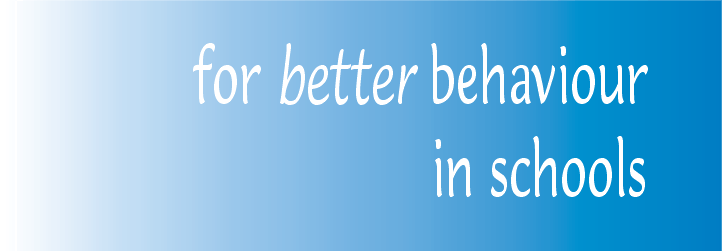

Home | News | Publications | Courses | About | New Outlooks | Checklist | Comment/ideas | Contact
 |
 |
|
Home | News | Publications | Courses | About | New Outlooks | Checklist | Comment/ideas | Contact |
|
| Comment and discussion | |
The Framework
'Blog'. A page for comment and ideas on all aspects of Behaviour in schools and
methods for improvement. |
|
This page is for comment and ideas from Framework in Birmingham and elsewhere to help those who want to translate the principles into good practice. Please let us know if you have any contributions to Hugh Williams
Framework: 10 years beyond In 2007 Framework for Intervention achieved its 10th year of operation in Birmingham. Given the pace of change in education in the UK, this in itself is a reflection of the endurance of the idea. Few of its contemporaries in 1997 in the field of behaviour in schools, even approaches funded and promoted by the government, still exist. But, like all activities, Framework needs constant development, and from time to time some radical re-thinking (see the references for Argyris and Schon in the list below). Around the tenth anniversary is a good time for review, and this is starting to take place. From the start, we have shared Framework widely (this website is one of the oldest), and this has meant that others have taken up the idea and run with it themselves. If you are using Framework ideas and would like to be involved in the review, tell us at reveiw@f4i.org. Email to infomail@f4i.org if you want to be informed of developments through email. Ideas coming from comment and views will be be reflected in the developments being planned in Birmingham (see page on the current project). Framework and School Management Framework for Intervention offers consultation for schools, LEAs and government organisations on developing whole school management using Framework/Learning Organisation/Quality management principles. This work would be influenced by the best in management thinking such as the work of Deming, Peters, Senge and Handy. The reference list below gives an indication of the range of sources for Framework, which extend from the educational and psychological to mainstream management sources which have influenced major international corporations- particulary Toyota motor company. Call any of the persons on the contacts page for information and discussion. Useful Framework-related references Argyris, M. and Schön, D. (1974) Theory in Practice. Increasing professional effectiveness, San Francisco: Jossey-Bass. (Landmark statement of 'double-loop' learning' and distinction between espoused theory and theory-in-action) Argyris, C. and Schön, D. (1996) Organizational learning II: Theory, method and practice, Reading, Mass: Addison Wesley. (The last collaboration of this hugely influential partnership before Donald Schön's death in 1997) Brofenbrenner, U.(ed) (2005) Making Human Beings Human: Bioecological Perspectives on Human Development. London:Sage (Evidence for the crucial part environments play in the development of human behaviours. Reflects the emphasis in Vygotsky’s work on the social nature of mediated learning.) Daniels A, and Williams H, (2000) 'Framework for
Intervention Part I: Reducing the need for exclusions and statements for
behaviour' Educational Psychology in Practice. 15 (4) 220-227 (Introductory
text) Rose, S. (2005) The 21st Century Brain.
London:Penguin (Stephen Rose is a biologist who has specialised in reearch on
the brain, particularly in the field of Alzheimer's disease. In this book he
gives a (relatively!) easily understood account of current knowledge of the
development of the brain in the light of increasing ability to scan conscious
activity. He emphasises that genes can only be expressed through their
interaction with environments and through the constant making and breaking of
synaptic connections in the brain.) |
|
Framework: 10 years beyond-reflecting on the 10th anniversary in 2007 Framework and school management-about the relevance of Framework to other agendas in school management Framework related reference list-annotated list of books and papers explaining the evidence base and theory behind Framework |
|
Home | News | Publications | Courses | About | New Outlooks | Checklist | Comment/ideas | Contact Framework for Intervention is a non-profit making agency of Birmingham City Council's Children, Young Person and Families Department (Children's Services). It is administered within the Educational Psychology Service. (c) Birmingham City Council 1997- |